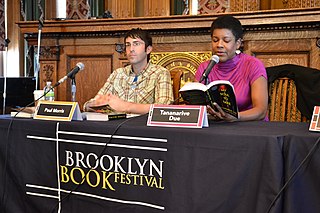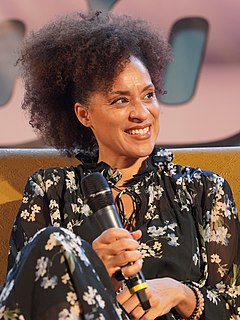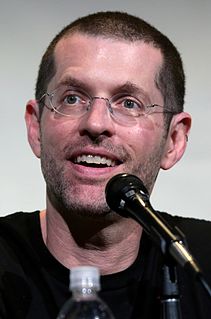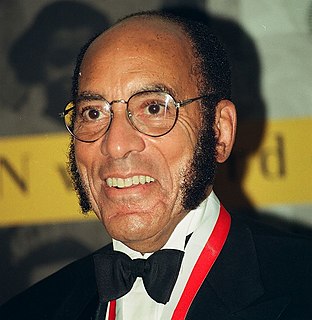A Quote by Tananarive Due
I believe black characters in fiction are still revolutionary, given our long history of erasure.
Quote Topics
Related Quotes
Black History is enjoying the life of our ancestors who paved the way for every African-American. No matter what color you are, the history of Blacks affected everyone; that's why we should cherish and respect Black history. Black history changed America and is continuing to change and shape our country. Black history is about everyone coming together to better themselves and America. Black history is being comfortable in your own skin no matter what color you are. Black history makes me proud of where I came from and where I am going in life.
'America's Dad' is what we called Bill Cosby. And we called him that because, well, what a revolutionary way to put it. Through him, we were thumbing our noses at the long, dreary history for black men in America by elevating this one to a paternal Olympus. In the 1980s, he made the black American family seem 'just like us.'
Science fiction is the most important literature in the history of the world, because it's the history of ideas, the history of our civilization birthing itself. ...Science fiction is central to everything we've ever done, and people who make fun of science fiction writers don't know what they're talking about.
Revolutionary politics, revolutionary art, and oh, the revolutionary mind, is the dullest thing on earth. When we open a revolutionary review, or read a revolutionary speech, we yawn our heads off. It is true, there is nothing else. Everything is correctly, monotonously, dishearteningly revolutionary. What a stupid word! What a stale fuss!
The history of black people in America, it's so painful. But throughout all that history there has still been the ability of our community to find love and laughter and joy even in these very painful circumstances. That's why I think in particular black love is so powerful, because it's constantly under attack.
'Confederate,' in all of our minds, will be an alternative-history show. It's a science-fiction show. One of the strengths of science fiction is that it can show us how this history is still with us in a way no strictly realistic drama ever could, whether it were a historical drama or a contemporary drama.
I've felt pressure to produce long fiction for as long as I've been writing fiction. There's just an incredible bias in the publishing industry toward novels and away from short stories. They're seen as D.O.A. in the marketplace, which seems nuts to me, given that various collections done smashingly and deservedly well in economic terms.
The first act of insight is throw away the labels. In fiction, while we do not necessarily write about ourselves, we write out of ourselves, using ourselves; what we learn from, what we are sensitive to, what we feel strongly about--these become our characters and go to make our plots. Characters in fiction are conceived from within, and they have, accordingly, their own interior life; they are individuals every time.



































